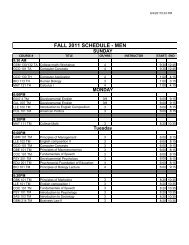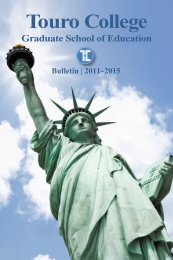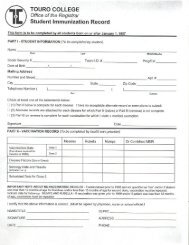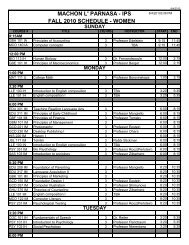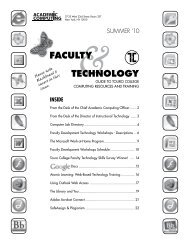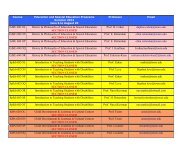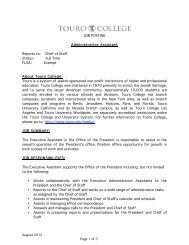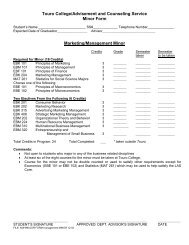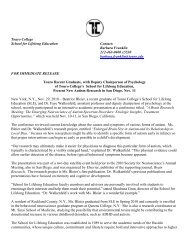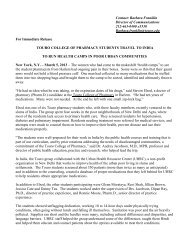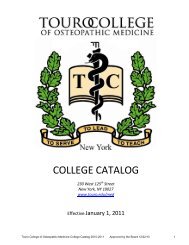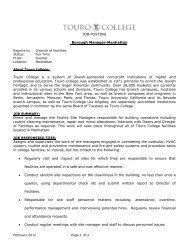Making the World a Better Place - Touro College
Making the World a Better Place - Touro College
Making the World a Better Place - Touro College
Create successful ePaper yourself
Turn your PDF publications into a flip-book with our unique Google optimized e-Paper software.
unable to speak, understand speech, read or<br />
write.<br />
“Often, people with aphasia will come in<br />
thinking life is over,” says Isabella Reichel,<br />
Ed.D., associate professor at <strong>the</strong> Graduate<br />
Program in Speech-Language Pathology,<br />
who has been leading <strong>the</strong> group for three<br />
years. “We try to find topics that are<br />
meaningful so that <strong>the</strong>y forget about <strong>the</strong>ir<br />
inhibitions because <strong>the</strong>y are so emotionally<br />
involved.”<br />
Practicing with speech-language<br />
pathologists is critical to rehabilitation, since<br />
only a small percentage of patients recover<br />
without proper <strong>the</strong>rapy. Established in 2009,<br />
Dr. Reichel’s group fulfills a particular niche<br />
as <strong>the</strong> only Russian-speaking aphasia group<br />
in <strong>the</strong> United States, and <strong>the</strong> only bilingual<br />
aphasia group in New York. Dr. Reichel<br />
explains that while <strong>the</strong>re are individual<br />
practitioners who speak multiple languages,<br />
those practitioners may not be easily<br />
accessible. Additionally, <strong>the</strong> benefit for<br />
patients to be in a group setting with<br />
o<strong>the</strong>r immigrants who speak <strong>the</strong>ir<br />
native language is paramount,<br />
especially for those already separated<br />
from <strong>the</strong>ir home countries and<br />
cultures and suffering from a<br />
condition that can be as isolating as<br />
aphasia is.<br />
“This rehab through group<br />
treatment with bilingual speech<br />
pathologists is an area that no one<br />
else is addressing,” says Hindy<br />
Lubinsky, department chair and<br />
director of <strong>the</strong> Graduate Program in<br />
Speech-Language Pathology,<br />
which currently has an enrollment of<br />
approximately 100 students. “It’s a great way<br />
for us to give back to underserved<br />
populations and teach students important<br />
skills, as well as <strong>the</strong> value of community<br />
involvement, which is an integral part of<br />
<strong>Touro</strong>’s mission.”<br />
Currently, three Russian-speaking<br />
students who are earning <strong>the</strong>ir Master of<br />
Science in Speech-Language Pathology are<br />
helping to run <strong>the</strong> group under <strong>the</strong><br />
supervision of Dr. Reichel.<br />
“Our group offers camaraderie and is<br />
upbeat and optimistic,” says Dr. Reichel, who<br />
is also from <strong>the</strong> former Soviet Union.<br />
To encourage conversation, Dr. Reichel<br />
and <strong>the</strong> graduate students introduce songs,<br />
poetry and o<strong>the</strong>r aspects of Russian culture.<br />
Because Dr. Reichel, <strong>the</strong> students and<br />
patients have shared backgrounds, <strong>the</strong>re’s<br />
an instant familiarity that sets this<br />
rehabilitation group apart. Alena Mahas, a<br />
24 TOURO LINKS I SPRING 2013



